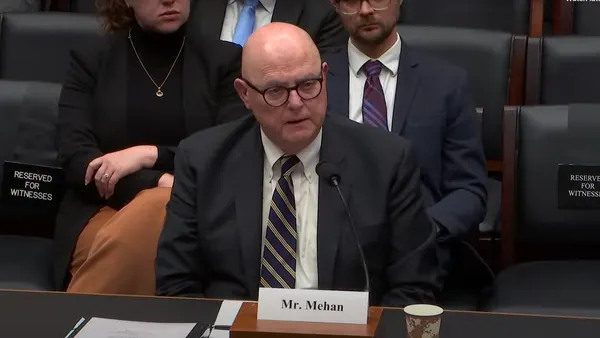Dive Brief:
- A Chinese company claims to have invented a biodegradable plastic from bentonite clay. Weifang Huawei Bentonite Group Co — which calls itself the largest bentonite manufacturer in China — said the product, which passed European Union’s packaging standards in October, is fully biodegradable in water, carbon dioxide, and nitrogen when buried in soil.
- The product can be used to manufacture plastic food containers, service ware, shopping bags, and agricultural films.
- A panel of reviewers concluded that the technology is a first in China and also demonstrates superior performance to similar products made outside of China. More than 100 industry experts came for the product launch in Weifang, Shandong province, the company said in a statement.
Dive Insight:
There is increasing talk about biodegradable products to reduce solid waste and ease landfill burdens, with ideas as innovative as biodegradable iPhones with organic semiconductors to light-up small electronic devices’ screens.
The biodegradable plastic ideas are as out-of-the box, however many environmentalists and some scientists are concerned that biodegradable plastic would create more harm than good.
A 2011 study in Environmental Science & Technology showed that biodegradable products, including plastics, release powerful greenhouse gas as they break down.
The authors studied how several types of waste, including Procter & Gamble’s biodegradable PHBO, would break down on landfills to determine the volume of methane gas each generated as it decomposed. Biodegradable plastic generated the most methane in the average landfill, followed by office paper and food waste.
Research shows that biodegradable plastics only break down in the presence of certain microorganisms, (bacteria or fungi) in water, carbon dioxide, and some bio-material. And an imbalance of these components could be environmentally disruptive.
Some environmentalists say they are concerned there would also be behavioral issues tied to usage. They predict that consumers, figuring they don’t have to worry about creating waste as the materials break down, would likely toss their disposables into the trash.
If biodegradable plastics are the materials of the future, the industry will need to make strides in educating consumers on the best ways to use and dispose of the waste.








